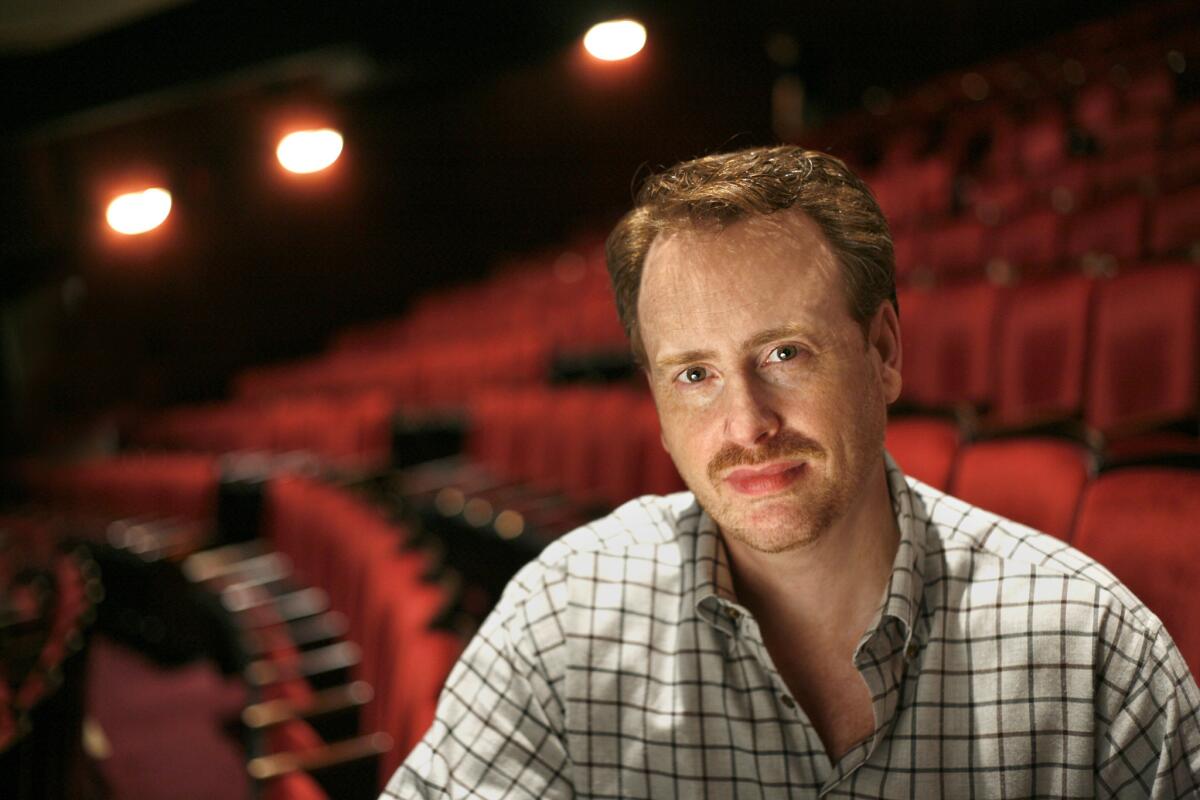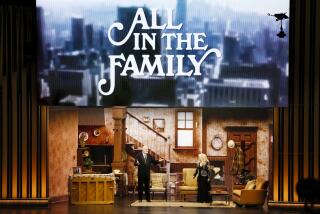At NBC executive session, cable-broadcast divide looms large

As the top-rated network in the 18-to-49 demographic for the first time in a decade, an Olympics-buoyed NBC had plenty to brag about Sunday at the Television Critics Assn. summer press tour.
But even with its considerable successes, the network’s top executives — NBC Entertainment Chairman Bob Greenblatt, President Jennifer Salke and president of alternative and late-night programming Paul Telegdy — still spent plenty of time contending with specter of cable television and other emerging outlets.
Asked to give advice to whomever replaces outgoing Fox chairman Kevin Reilly, Greenblatt, who ran Showtime before moving to NBC, emphasized the demands of developing and scheduling “15 to 20 shows a year” versus the more limited slate of a cable network.
“You have to love the medium. If you don’t really want to be in the broadcast TV landscape you shouldn’t be,” he said. “The volume is the killer.”
The broadcast-cable divide was underscored by the timing of the panel, which took place just three days after the Emmy nominations, where once again the big four broadcasters found themselves edged out of the major categories in favor of outlets such as HBO, FX and Netflix.
The increasing dominance of cable at the Emmys has prompted some to suggest separate categories for broadcast series, which typically air 22 episodes a season, compared with a dozen or fewer for cable programs
NBC racked up 46 Emmy nominations last week, enough to put it in third place, but the network’s haul was dwarfed by perennial leader HBO with 99, and nearly matched by FX, with 45. James Spader, star of NBC’s freshman hit “The Blacklist,” was shut out of the drama actor category, one of the day’s many perceived snubs.
“I’m not going to grouse about the Emmys,” Greenblatt said, though he joked that perhaps the Cable Ace Awards ought to be revived.
While he expressed skepticism that the Emmys had any real impact on viewership, Greenblatt acknowledged that “emotionally, we all care” about awards. “Of course you want that validation.”
Greenblatt also underscored the difficulty of finding viewers for the kinds of creatively risky shows that would otherwise thrive on cable.
“‘Hannibal’ is one of the best shows we have creatively and one of the best reviewed shows we’ve had since I’ve been here, and we still struggle to find an audience for it,” he said of the drama, which averages about 2.5-million viewers in its Friday-night time slot.
“If this were on a cable network, the small audience wouldn’t matter and it would be deemed more successful than it is on our network,” he continued. “And I don’t know why 5 or 8 million won’t watch ‘Hannibal’ on a broadcast network. ... The minute you try to do something that is jarring and subversive and frightening it gets into that territory where you start to peel away the mass audience.”
In a panel later Sunday morning about the Emmy Awards, Television Academy chairman and CEO Bruce Rosenblum fielded numerous questions about the perceived need to change Emmy categories with the changing times and noted that, compared with five years ago, 40% more dramas and 60% more comedies were submitted for Emmys consideration.
The cable-versus-network issue also came up in discussion of “The Michael J. Fox Show,” which was a heavily hyped disappointment for NBC this past season, part of a failed bid to revive its comedy dominance on Thursday nights.
“I’d love to have the luxury of not worrying what the ratings were, like in cable,” Greenblatt said of the sitcom.
More to Read
The complete guide to home viewing
Get Screen Gab for everything about the TV shows and streaming movies everyone’s talking about.
You may occasionally receive promotional content from the Los Angeles Times.






